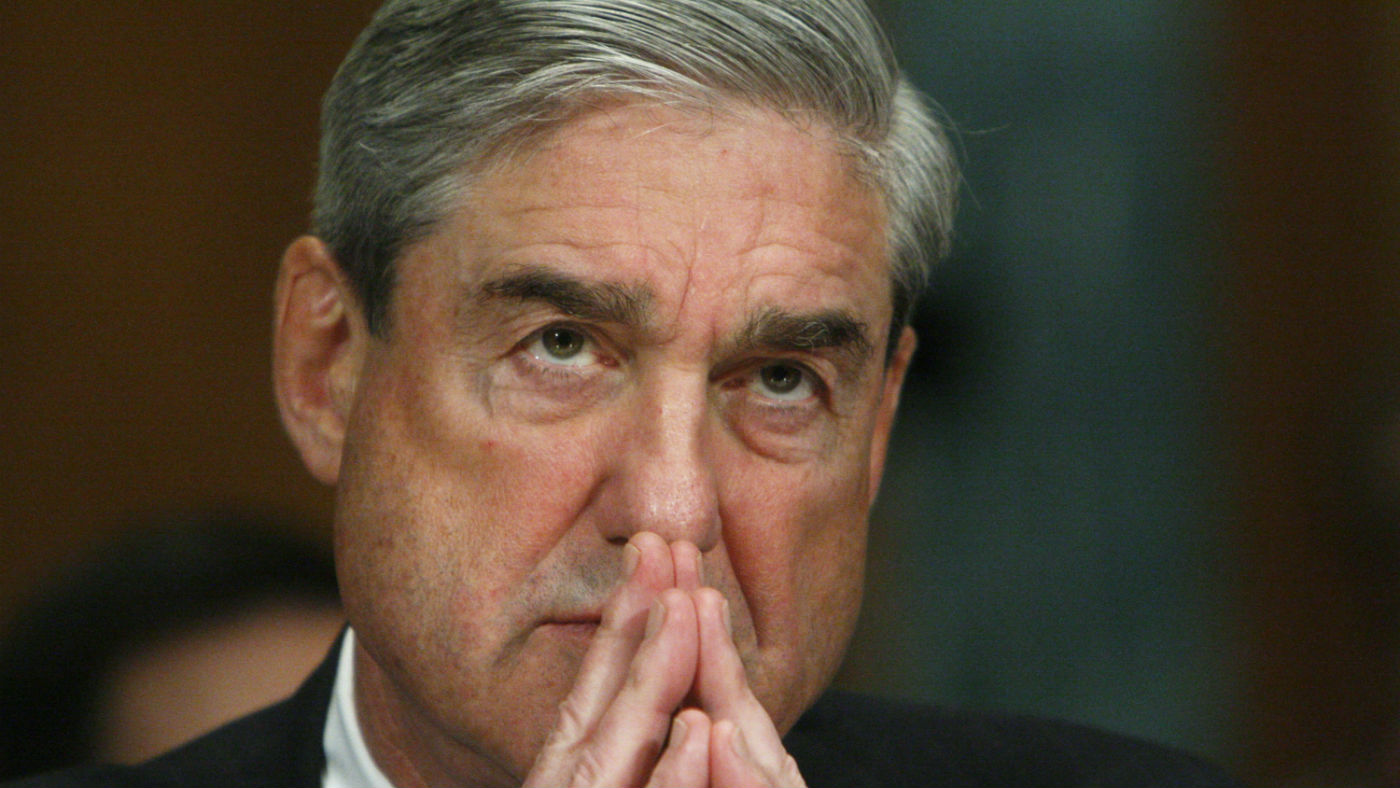Secret justice: How do US grand juries work?
They began in England centuries ago - and could bring down a president today

A free daily email with the biggest news stories of the day – and the best features from TheWeek.com
You are now subscribed
Your newsletter sign-up was successful
Special counsel Robert Mueller has reportedly assembled a US grand jury to examine allegations of collusion between Donald Trump's election campaign and Russia.
Commentators are divided about what this means: some consider it a natural progression in the inquiry, while others consider it proof he knows more than he is saying.
What is a grand jury?
The Week
Escape your echo chamber. Get the facts behind the news, plus analysis from multiple perspectives.

Sign up for The Week's Free Newsletters
From our morning news briefing to a weekly Good News Newsletter, get the best of The Week delivered directly to your inbox.
From our morning news briefing to a weekly Good News Newsletter, get the best of The Week delivered directly to your inbox.
Grand juries were introduced in England eight centuries and included in the US Bill of Rights.
"Yet the Supreme Court has never required states to maintain grand juries as a matter of fundamental right. Britain abandoned them 50 years ago; so have half the states," the New York Times reports.
In essence, a grand jury is a panel tasked with deciding whether or not there is sufficient evidence to indict an individual for a crime, says The Independent.
It is an impartial body generally made up of 16 to 23 laypeople who scrutinise evidence presented by the prosecutor and hear testimony under oath.
A free daily email with the biggest news stories of the day – and the best features from TheWeek.com
They are responsible for the preliminary decision about whether or not to officially accuse a defendant and compel him or her to stand trial.
"At their core, grand juries are about finding probable cause that a crime has been committed," says CNN legal analyst Danny Cevallos.
The term "grand jury" stems from the fact it usually has a greater number of jurors than a trial jury who may have to sit for months at a time.
What powers do grand juries have?
"In some big cases, they are critical to the investigations themselves because grand juries - unlike prosecutors and law enforcement agents - can issue subpoenas and compel witnesses to answer questions under oath,"
Samuel Gross, a law professor at the University of Michigan, told Vox.
While grand juries are impartial, they remain a "powerful tool" for prosecutors due to their unique investigative powers, says the New Yorker.
Who sits on a grand jury?
Ordinary citizens are "selected in a similar manner to a jury in a criminal trial in England and Wales", says the Independent.
Why are grand juries held in secret?
Grand jury proceedings are conducted in private, which means "no members of the public or press are privy to [their] activities", Business Insider says. There are no judges and no defense lawyers.
"Some of that secrecy is necessary to protect witnesses and the reputations of persons being investigated," says The New York Times.
In the case of the Trump-Russia inquiry, national security may also be discussed.
What does this tell us?
The creation of a grand jury is "certainly a significant step that shows [Mueller] means business", says Jeffrey Toobin, senior legal analyst for CNN, "But it doesn't mean that criminal charges are imminent nor does it mean criminal charges will ever happen."
After all, a grand jury was convened in the investigation into Hillary Clinton's alleged misuse of emails but it did not issue any indictments, reports the New Yorker.
-
 What is the endgame in the DHS shutdown?
What is the endgame in the DHS shutdown?Today’s Big Question Democrats want to rein in ICE’s immigration crackdown
-
 ‘Poor time management isn’t just an inconvenience’
‘Poor time management isn’t just an inconvenience’Instant Opinion Opinion, comment and editorials of the day
-
 Bad Bunny’s Super Bowl: A win for unity
Bad Bunny’s Super Bowl: A win for unityFeature The global superstar's halftime show was a celebration for everyone to enjoy
-
 Witkoff and Kushner tackle Ukraine, Iran in Geneva
Witkoff and Kushner tackle Ukraine, Iran in GenevaSpeed Read Steve Witkoff and Jared Kushner held negotiations aimed at securing a nuclear deal with Iran and an end to Russia’s war in Ukraine
-
 Kurt Olsen: Trump’s ‘Stop the Steal’ lawyer playing a major White House role
Kurt Olsen: Trump’s ‘Stop the Steal’ lawyer playing a major White House roleIn the Spotlight Olsen reportedly has access to significant US intelligence
-
 Trump’s EPA kills legal basis for federal climate policy
Trump’s EPA kills legal basis for federal climate policySpeed Read The government’s authority to regulate several planet-warming pollutants has been repealed
-
 House votes to end Trump’s Canada tariffs
House votes to end Trump’s Canada tariffsSpeed Read Six Republicans joined with Democrats to repeal the president’s tariffs
-
 Bondi, Democrats clash over Epstein in hearing
Bondi, Democrats clash over Epstein in hearingSpeed Read Attorney General Pam Bondi ignored survivors of convicted sex offender Jeffrey Epstein and demanded that Democrats apologize to Trump
-
 Judge blocks Trump suit for Michigan voter rolls
Judge blocks Trump suit for Michigan voter rollsSpeed Read A Trump-appointed federal judge rejected the administration’s demand for voters’ personal data
-
 US to send 200 troops to Nigeria to train army
US to send 200 troops to Nigeria to train armySpeed Read Trump has accused the West African government of failing to protect Christians from terrorist attacks
-
 Grand jury rejects charging 6 Democrats for ‘orders’ video
Grand jury rejects charging 6 Democrats for ‘orders’ videoSpeed Read The jury refused to indict Democratic lawmakers for a video in which they urged military members to resist illegal orders